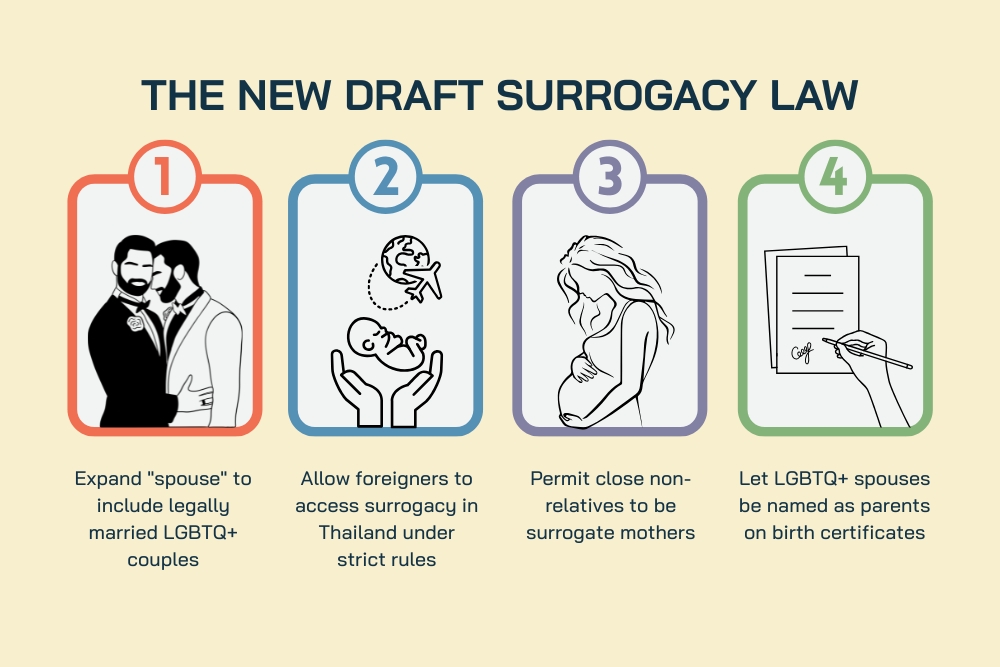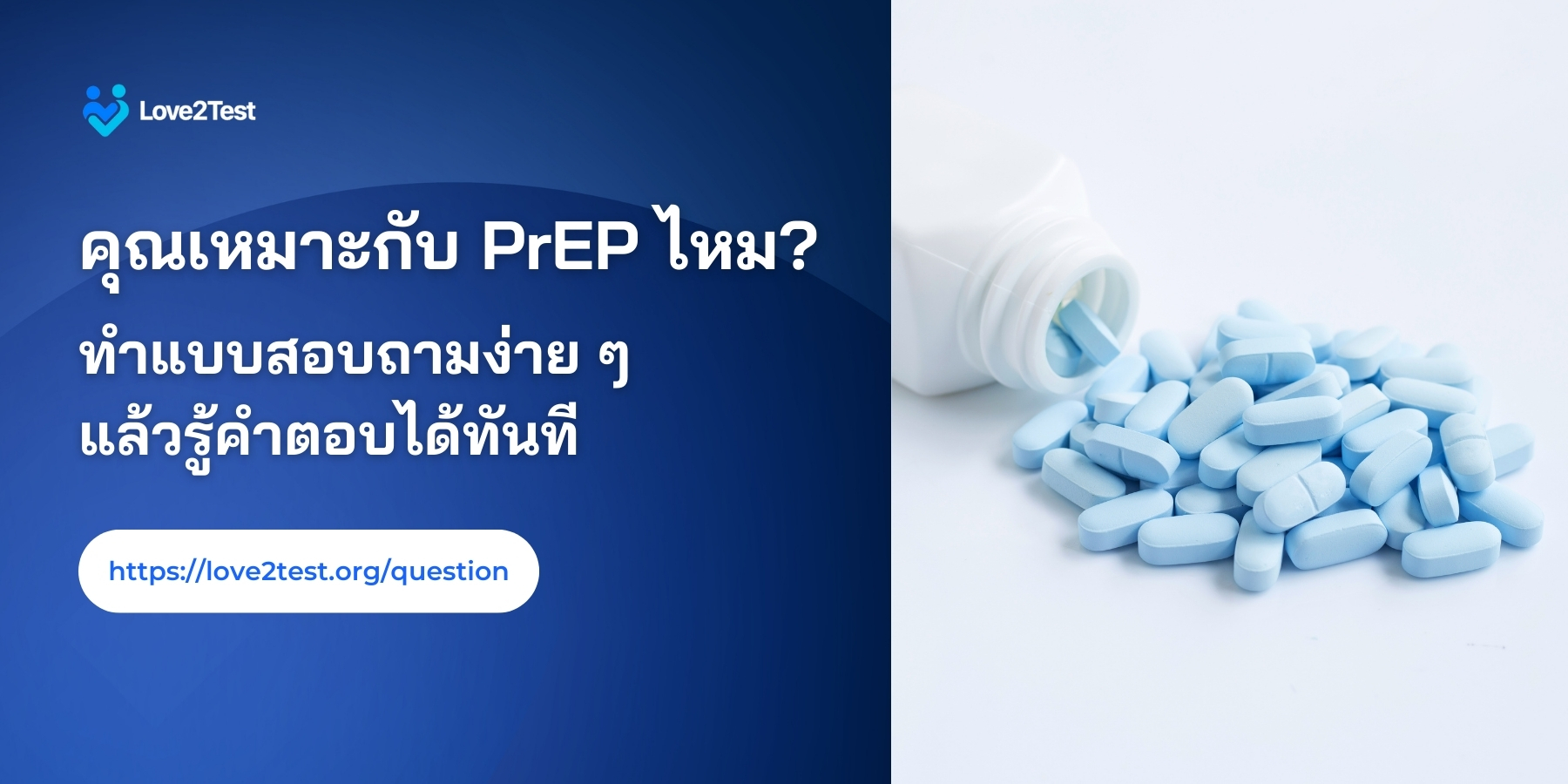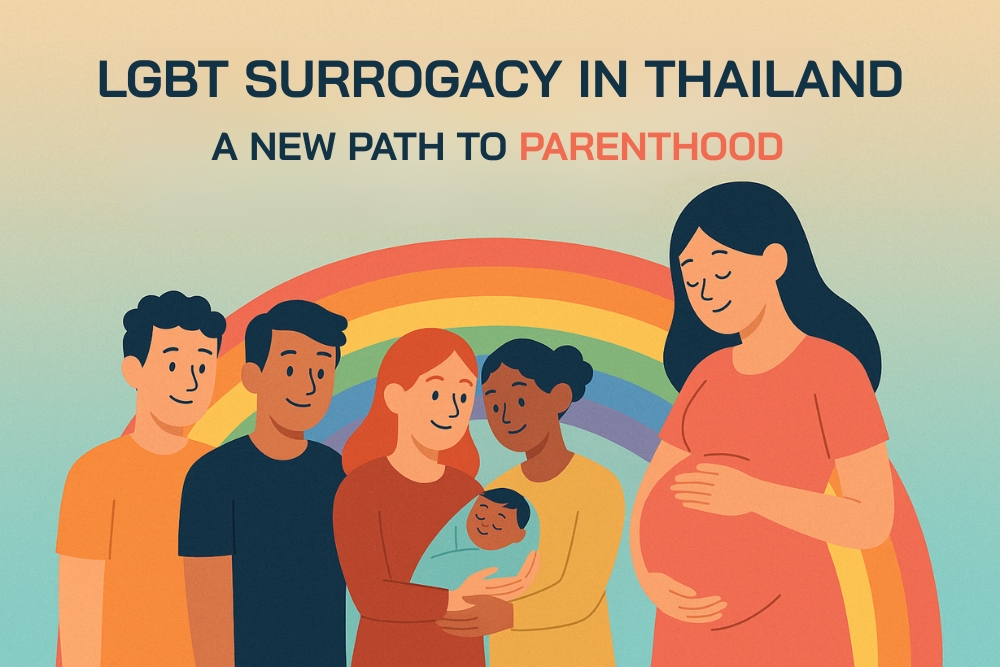As Thailand officially embraces marriage equality in 2025, many may view it as a symbolic victory for the LGBTQ+ community. However, the implications of this legislation go far beyond the right to marry—it also affirms the deeper right to build a family. At the heart of family-building lies the desire to have children, and surrogacy has become a vital option for LGBTQ+ couples who dream of becoming parents. This article explores the rise of LGBT surrogacy in Thailand, examining how it has become possible, what opportunities and challenges exist, and analyzing the legal, ethical, social, and economic dimensions that shape this new path to parenthood in the era of marriage equality.
What Is Surrogacy and How Does It Relate to LGBTQ+ Couples?
Surrogacy is a process in which a woman voluntarily agrees to carry a pregnancy for another person or couple, using fertilized eggs and sperm—either from the intended parents or from donors—through assisted reproductive technologies (ART). For LGBTQ+ couples, who by nature cannot conceive children together, surrogacy is one of the few options available to have biological children.
Examples include:

- Gay couples using a donated egg combined with the sperm of one partner.
- Lesbian couples using the egg of one partner and donor sperm, with a surrogate carrying the pregnancy.
- Transgender couples who share the same reproductive anatomy and require surrogacy to conceive.
Historically, Thai law allowed surrogacy only for heterosexual married couples with medical infertility issues. However, since the legalization of marriage equality in 2025, there has been growing advocacy to expand surrogacy rights to include LGBTQ+ couples who are legally married—granting them the same family-building options as heterosexual couples.
The Evolution of Surrogacy Law: From Restriction to Equality
Efforts to expand surrogacy access for LGBTQ+ couples in Thailand could not take shape without reforming the laws that govern reproductive services. The key legislation—the Assisted Reproductive Technology Act of 2015—was once praised as one of the strictest and most well-regulated surrogacy laws in the region. However, its rigid provisions became a double-edged sword, effectively excluding same-sex couples and diverse families from accessing surrogacy entirely.
In 2025, following the enactment of the Marriage Equality Law, the Thai government and Ministry of Public Health jointly proposed a draft amendment to the existing surrogacy law. This draft introduced several critical updates—marking a true turning point that could reshape the future for LGBTQ+ families in Thailand and bring long-awaited legal recognition to their right to build a family through surrogacy.

A Major Turning Point: The New Draft Surrogacy Law
Redefining “Spouse”

One of the most significant barriers in the original law was the narrow definition of the term “spouse,” which referred exclusively to a heterosexual man and woman. As a result, same-sex couples—despite being legally married under the new marriage equality law—were entirely excluded from accessing surrogacy services. The new draft legislation proposes to broaden the definition of “spouse” to include LGBTQ+ couples who are legally married, thereby granting them full legal recognition in the surrogacy process.
Extending Access to Foreign Nationals—Under Strict Conditions
Beyond same-sex couples, the new draft also proposes allowing foreign nationals to access surrogacy in Thailand under clearly defined ethical and legal conditions, primarily to prevent human trafficking and exploitation of Thai women. These conditions include:
- The surrogate must share the same nationality as at least one of the intended parents.
- There must be a pre-existing personal relationship between the surrogate and the intended parents; commercial surrogate agencies are prohibited.
- No commercial compensation may be offered for surrogacy beyond reasonable expenses.
This framework balances ethical responsibility with accessibility, allowing foreign LGBTQ+ couples to pursue surrogacy in Thailand within safe and regulated boundaries.
Revising Eligibility Criteria for Surrogate Mothers
Under the previous law, the surrogate had to be a blood relative of one of the spouses. This limited options for many couples who lacked willing family members. The new draft proposes more flexible criteria:
- Surrogates can now be individuals who are closely acquainted or have a personal connection to the intended parents, even if not related by blood.
- Eligible surrogates must be aged between 20 and 35 years.
- Surrogates must not have a history of excessive ART-related pregnancies beyond a set medical threshold.
- Every surrogate must undergo both physical and psychological evaluations conducted by medical professionals before proceeding.
Protecting the Rights of Children Born via Surrogacy
A vital focus of the new draft law is ensuring the legal recognition and protection of children born through surrogacy—especially for children of same-sex couples. Key proposals include:
- Legally married LGBTQ+ couples will be allowed to have their names listed as the child’s legal parents on the birth certificate.
- Children will be entitled to Thai nationality through descent or birthright, depending on the circumstances.
- Once of age, children will have the right to access information about their biological origins, should they wish to.
The Movement After Marriage Equality
Following the enactment of Thailand’s Marriage Equality Law, legal scholars, human rights advocates, and medical professionals have come together to propose amendments to the existing surrogacy law. A key component of these amendments is the expansion of the term “spouse” to include LGBTQ+ couples who are legally married under Thai law.
If this revised legislation is approved, LGBTQ+ couples will be able to:
- Legally access assisted reproductive technologies (ART)
- Enter into formal surrogacy agreements with a consenting surrogate mother
- Be listed as legal parents on the child’s birth certificate
This would mark a monumental shift—transforming surrogacy for LGBTQ+ couples from a distant dream into a constitutionally protected right. It signals that in Thailand, the freedom to form a family is no longer defined by gender, but by love, commitment, and equality under the law.
The Rationale Behind Surrogacy Law Reform
Thailand is one of the few countries in Asia with a clearly defined surrogacy law, enacted in 2015. This legislation marked a significant step in protecting the rights of surrogate mothers and the children born through such arrangements. However, over time, the law has revealed its limitations—excluding same-sex couples and foreign nationals who genuinely wish to start families. As a result, the push to reform surrogacy law has emerged from a range of long-standing social, legal, and ethical factors that demand greater inclusivity and equality.
The need to reform Thailand’s surrogacy law has arisen from multiple long-standing factors, including:

1. Changing Family Structures
In an era of growing acceptance of gender and sexual diversity, the concept of family is no longer limited to heterosexual couples. It now includes same-sex and transgender couples who wish to have biological children or prefer not to adopt. Restricting surrogacy rights solely to heterosexual married couples is therefore seen as a form of discrimination—one that runs counter to the principles of human rights and equality.
2. Marriage Equality Reshapes the Equation of Rights
With the enactment of the Marriage Equality Act in 2025, LGBTQ+ couples in Thailand gained the legal right to marry and access a range of civil rights—such as joint property ownership, medical decision-making, and inheritance. However, without equal access to surrogacy services, the right to form a family remains incomplete. Reforming surrogacy laws is therefore a crucial next step in fulfilling the full spectrum of rights that marriage equality promises.
3. Limitations of the Previous Law for Aspiring Parents
Under the original surrogacy law, the surrogate mother was required to be a relative of the intended couple, and no form of compensation was allowed. These restrictions made the surrogacy process overly complicated and difficult to access—even for heterosexual couples. For LGBTQ+ couples and foreign nationals, the barriers were even higher. The goal of reforming the law is to make surrogacy a viable, realistic option that aligns with the social and familial realities of today’s world.
4. Thailand’s Potential as a Medical Hub
Thailand is home to numerous clinics and medical professionals specializing in assisted reproductive technologies, with pregnancy success rates comparable to international standards. Allowing LGBTQ+ couples and foreign nationals to access surrogacy services would enhance the country’s position in medical tourism and generate significant economic benefits. This represents a key opportunity that the government should not overlook in its vision for healthcare-driven growth.
The Hope of the LGBTQIA+ Community
With the passage of the Marriage Equality Law in Thailand, the LGBTQIA+ community has gained more than just the legal right to marry—it has ignited a new wave of hope that once felt distant and unattainable. One of the most heartfelt dreams shared by many is the desire to have children of their own and build a complete, loving family.
When Dreams Become Rights
For decades, same-sex couples in Thailand have lived under a legal system that failed to recognize their family status. They could share a home, build a life together, and even accumulate assets jointly—but when it came to starting a family, that dream often ended at the limits of outdated laws and societal norms.
Now, with legal progress and shifting mindsets, the expanding access to surrogacy for LGBTQIA+ couples sends a powerful message: the dream of parenthood is no longer just a fantasy—it is something real, attainable, and protected within a safe and equal legal framework.
Families Are Not Defined by Gender, but by Love and Responsibility
Many individuals in the LGBTQIA+ community are fully capable of being devoted, responsible parents—emotionally, financially, and practically. Granting them the legal right to access surrogacy acknowledges a simple but profound truth: being a parent is not about gender identity, but about the ability and intention to provide love, care, and stability.
Voices from within the community speak to this readiness:
“We have a home, a stable job, and a loving relationship. So why shouldn’t we have the right to be parents?” — Kaeng and Ohm, a gay couple from Chiang Mai
“All we want is to love a child and raise them well. That should be enough to call us a family.” — Oum and Beam, a lesbian couple from Bangkok
A Legal Safe Space
Beyond personal dreams, what the LGBTQIA+ community seeks most is a secure legal foundation for building and protecting their lives together. This includes:
- The right to have both parents’ names on their child’s birth certificate
- Legal authority to make medical decisions for their child
- The ability to legally adopt or recognize their own child
- Protection in emergencies, such as the death of a spouse
When surrogacy laws are expanded to grant LGBTQIA+ couples the same rights as heterosexual couples, it becomes a crucial step toward building families that are not just emotionally bonded, but also legally protected and secure—without ambiguity or legal gray areas.
International Precedents: Hope Already Realized Elsewhere
Countries like Canada, Australia, the United States, and the Netherlands have long recognized the right of LGBTQIA+ couples to build families through surrogacy. There are countless examples of thriving families, happy children, and full acceptance by society in these countries.
These real-world precedents serve as inspiration and proof that such systems can work. For the Thai LGBTQIA+ community, they represent a powerful hope—that Thailand too can move forward, embrace modern values, and ensure no one is left behind simply because of who they love.

A Hope That Must Not Fade
While legal reforms have begun to take shape. Meaningful change in society still requires strong momentum from all sectors—government, private organizations, medical institutions, human rights advocates, and the general public. Together, they must help build a supportive system. One that ensures the hopes of the LGBTQIA+ community are not just written into law. But are fully realized in everyday life.
Because ultimately, the right to have a child should not be determined by gender or sexual orientation. It should be about love, sacrifice, and the deeply human desire to nurture and care for another life—a choice that every person deserves the right to make.
Economic Implications of LGBT Surrogacy in the Thai Context
|
Economic Benefits |
Risks That Must Be Managed |
|---|---|
| Increases revenue for clinics and private hospitals | Without proper regulation, it may open the door to human trafficking |
| Attracts international patients through medical tourism | Commercializing surrogacy beyond legal boundaries may lead to ethical violations |
| Creates new job opportunities in related services (e.g., coordinators, specialized nurses) | Economically disadvantaged women may be exploited as surrogate mothers |
Related Articles
- IDAHOBIT 2025 – The Power of LGBTQ+ Communities in Thailand
- March 1st: Zero Discrimination Day – Building a Society Without Stigma
Frequently Asked Questions About LGBT Surrogacy
☞ A woman who serves as a surrogate must be between 20 and 35 years old, have a prior history of pregnancy, and must not be motivated by commercial profit. Ideally, the surrogate should be a relative or someone closely acquainted with the intended parents. She must also undergo a thorough medical and psychological evaluation by licensed professionals.
☞ A child born through surrogacy can obtain Thai citizenship if at least one intended parent is a Thai national. However, if the surrogate or the egg/sperm donor is a foreign national, legal complications may arise. It is strongly recommended to consult a lawyer or government official in advance to ensure the child’s citizenship status is protected.
☞ The cost of surrogacy can vary widely depending on the clinic, the medical techniques used, and the complexity of each case. Expenses typically range from hundreds of thousands to several million Thai baht. The total cost should also include healthcare support for the surrogate mother and related diagnostic and medical screening fees.
☞ On average, the entire surrogacy process can take between 9 to 18 months. This includes document preparation, matching with a surrogate, medical evaluations, embryo transfer, pregnancy, delivery, and legal registration of the child. Additional time may be required for legal procedures, depending on the marital and citizenship status of the intended parents.
☞ Yes. In cases where the intended parents cannot use their own reproductive cells, using donor eggs or sperm is a common alternative. However, donors must undergo thorough health screenings and tests for infectious diseases. They are also required to provide clear written consent in accordance with clinic protocols and legal regulations.
Conclusion: A New Option That Must Not Be Denied
Surrogacy for LGBT couples is more than just a medical option. It is a powerful affirmation of the right to build a family in the era of marriage equality. Now that the Thai government has legalized marriage for all genders, a new hope is growing among LGBTQ+ couples. They dream of having children, building families, and living with the same dignity and legal protection as heterosexual couples.
“Reforming surrogacy law is not merely a technical adjustment in reproductive medicine—it is a powerful testament that Thailand is ready to embrace love in all its forms, to believe in the parenting potential of every gender, and to allow a child to be born into a family surrounded by love, even if that family looks different from tradition.”
True equality, however, cannot be achieved through a single piece of legislation. It requires systemic change across multiple dimensions—child rights, healthcare, ethics, education, and public attitudes.
Today, LGBT surrogacy may still be a developing hope. But if we work together to build a system that is safe, fair, and inclusive for all family types, that hope can be realized. It will no longer belong to just a few. It will be a victory for Thai society as a whole—driven by love, understanding, and genuine equality.
Reference:
แก้กฎหมายอุ้มบุญ เพิ่มสิทธิ LGBTQ+ เข้าถึงบริการ
แก้ไขกฎหมายอุ้มบุญ รับ พ.ร.บ.สมรสเท่าเทียม คนโสดอยากมีลูก ครอบคลุมแค่ไหน
- www.hfocus.org/content/2025/01/32801
สบส.แก้กฎหมายอุ้มบุญ รับสมรสเท่าเทียม เปิดทางคู่สมรสไทย-ต่างชาติ
- www.thaipbs.or.th/news/content/348489

